Using Nasal Sprays for Babies and Kids – Are They Safe?
No parents like to see their child suffer. It breaks their hearts when they see their child in intense pain. Even the most common things, like a blocked nose, could sometimes become highly uncomfortable and painful for babies. If you see your child suffering from a blocked nose and struggling for every breath, you will want to do everything you can to help him. A nasal spray is one of the most talked-about solutions for nasal blockages. There are many nasal sprays for kids available on the market that can relieve a blocked nose, but are these sprays safe for children? Let’s find out!
Nasal Congestion in Children
Nasal congestion is caused by nose tissues irritated by an allergen, infection, smoke, adenoids, medication or dust. It is marked by inflammation or swelling of the nose lining, production of mucus, difficulty breathing, sneezing, cough, and headaches (1).
Nasal congestion spray for kids is often used as a method of quick relief from discomfort.
What Are Nasal Sprays?
Nasal sprays are liquid medications you spray in your nose (2). They are a short-term solution that provides instant relief from congested nasal passages caused by colds, sinus infections, and allergies. Although nasal sprays offer immediate relief, they should not be used for more than three days in a row (3). Also, they should not be used for infants unless specifically prescribed by a doctor (4).
Types of Nasal Sprays
Three types of nasal sprays are used on the severity of the blockage. Here’s what each one of them is used for:
1. Saline Nasal Sprays
Saline nasal sprays are made of salt water and do not contain any medication. Salt water nasal sprays for babies help loosen excess mucus in the nasal passage. It also moisturises the passage and relieves the blockage, improving breathing (5).
2. Nasal Decongestant Sprays
These provide relief pretty quickly as they contain chemical medications. Decongestant nasal sprays work by narrowing the tiny blood vessels in your nose and reducing the swelling. If used for more than three to four days in a row, they tend to have the opposite effect and can worsen the congestion once the medication’s effects wear off. You can purchase these with a doctor’s prescription (5).
3. Steroid Nasal Sprays
Steroid nasal sprays are used to treat nasal blockages due to allergic rhinitis. They have an anti-inflammatory effect and are comparatively more complained about as only one dose of the medication can last up to 12 hours. However, they should be used only after your doctor prescribes them (5).
4. Nasal Antihistamine Sprays
Similar to oral antihistamines, these sprays are used to treat runny noses caused by allergies. They do so by blocking histamine. However, they can leave a bitter taste in the mouth (5).
5. Nasal Anticholinergic Sprays
They are used to treat people suffering from allergenic and non-allergenic rhinitis. They block acetylcholine, which decreases glandular secretions in the nasal passage. Their side effects include dry mouth and a bad taste (5).
6. Nasal Cromolyn Sodium Sprays
This helps with sneezing, runny nose, and congestion caused by allergies by inhibiting mast cells. Its side effects include a nasal burning sensation and a bad taste in the mouth (5).
Are Nasal Sprays Safe for Children?
You may be wondering, “Is nasal spray safe for babies?” While most decongestant nasal sprays can provide immediate relief to your child, sometimes they may have a negative effect, too. They might worsen the congestion once you stop the medication. Certain nasal sprays should not be used on children under six (6). That’s why it is always recommended to use saline nasal sprays for babies, as they do not contain any medication.
Thus, not all nasal sprays are safe for your baby, and some might have side effects. In the rest of the article, we’ve addressed some common concerns/ questions about using nasal sprays for babies and kids.
Do Allergic Nasal Sprays Affect a Child’s Growth?
Some children need to use nasal sprays to manage the symptoms of their allergies. These are often steroid sprays, which are known to affect the child’s growth. Allergic rhinitis is the most prevalent allergy that requires the use of these nasal sprays. The sprays containing the ingredient beclomethasone are known to slow the growth rate in children (7). However, if the nasal spray has Nasonex (mometasone) as the main active ingredient, it makes the spray harmless and does not impact the child’s growth.
How to Use Nasal Sprays?
No child will enjoy someone squirting something up their nose, but sometimes you don’t have a choice as a parent. Follow these simple steps to using a nasal spray for baby:
For Babies
Babies cannot blow their noses; hence, the parents must remove the mucus blocking their nasal passage. Here are some ways to go about it (8):
- Keep a nasal spray, towel, an aspirator and some tissues handy.
- Lay your baby in your lap – his head on your knees and feet pointing to your belly.
- Be gentle as you spray one or two drops into his nostrils. Wait a few seconds for the spray to start working and loosen the excess mucus.
- Close the other nostril and then, using a fully compressed aspirator, suck out all the mucus.
- Discard the mucus into the towel or sink, and then wipe off your baby’s nose with a tissue.
- Repeat the process on the other nostril.
- Do not touch the spray nozzle directly to your baby’s nose, which can spread germs.
For Older Kids
Older kids can resist better against things they don’t like. But, if you are gentle while administering the spray to your child, even this can go smoothly (9).
- Support your seated child with one arm and use the other hand to administer the drops.
- Ask your child to tilt his head back slightly.
- Ask your child to breathe and then squirt one drop into each nostril.
- Do not touch the spray to your child’s nose, as the infection may spread.
- Once you know the mucus is loosening up, help your child blow his nose.
If using a nasal spray sounds intimidating, your baby hasn’t shown improvement, or he just won’t let you spray, you could try some of the alternatives given below.
What are the Side Effects of Nasal Spray on Children?
While nasal spray temporarily relieves congestion in children, it might have some problematic side effects that you should watch out for. These include (10):
- Headache
- Nose/throat irritation with medication dripping down to the throat
- Coughing
- Upset stomach/vomiting
- Nosebleeds
- Temporary stinging
In case you notice the following symptoms, consult a doctor immediately (10):
- Allergic reactions like itching, hives, swollen, red, blistered, peeling skin accompanied by dizziness, fever, tightness in the chest, difficulty breathing, swelling on any part of the face, and wheezing
- Sever face pain
- Change in vision
- Redness or white patches in mouth or throat.
- Crusty nose
- Bone Pain
- Abnormal nose discharge
- Fever and chills
Alternatives to Nasal Sprays to Relieve Nasal Congestion in a Child
Not everyone is a fan of nasal sprays. If you are not sure how often to use saline nasal sprays for babies or toddlers, there are alternative methods you can use to help your child get rid of congestion:
- Steam – Steam is an age-old remedy for treating nasal congestion. You can use a vaporiser during bedtime or a makeshift sauna in the bathroom. Steam helps loosen the mucus, thereby relieving nasal congestion.
- Warm Baths – Warm baths can help divert the baby’s mind and relieve the blockage. Run a hot shower to accumulate steam, which will also help clear the blockage to some extent.
- Warm Liquids – Warm liquids like chicken soup also help with decongestion. You can also feed your child soups rich in vitamin C, like tomato soup, broccoli soup, lemon and coriander soup, etc., to help provide some relief.
- Healthy Diet – Many babies experience nasal congestion due to cold, which is common among those with a low immune system. If your baby has moved on to solid foods, you must incorporate foods that help build his immunity. If your baby is still breastfeeding, you must eat healthy to pass down all the nutrients to your little one through breast milk.
FAQs
1. Will nasal spray affect my child’s sleep?
If your kid suffers from Obstructive Sleep Apnea, a nasal spray might be a quick solution to help them sleep better (11).
2. Is a nasal spray useful to treat post-nasal drip in children?
The feeling of mucus collecting in your throat after dripping from the back of your nose is called post-nasal drip. While nasal sprays might be helpful in aiding this condition, it is best to consult your doctor for expert medical advice before doing so (12).
As mentioned above, babies have an underdeveloped immune system. Hence, they may catch a cold easily. If you follow the guidelines, administering nasal sprays to your child will become easy. If you do not prefer sprays, try one of the alternate methods. But remember, never self-medicate your child and always ensure a paediatrician validates the alternative methods before you try them. These preventive measures will help you ensure your baby does not undergo another set of medical issues and recovers soon.
References/Resources:
1. Nasal Congestion; Cleveland Clinic; https://my.clevelandclinic.org/health/diseases/17980-nasal-congestion#symptoms-and-causes
2. Nasal Sprays: How to Use Them Correctly; Family Doctor; https://familydoctor.org/nasal-sprays-how-to-use-them-correctly/
3. Take Care with Nasal Decongestant Sprays; University of Rochester Medical Center; https://www.urmc.rochester.edu/encyclopedia/content.aspx?contenttypeid=56&contentid=2914
4. Take Care with Nasal Sprays; Nationwide Children’s; https://www.nationwidechildrens.org/family-resources-education/family-resources-library/take-care-with-nasal-sprays
5. You Want Me To Spray What Up My Nose?; The American Academy of Otolaryngic Allergy; https://www.aaoallergy.org/you-want-me-to-spray-what-up-my-nose-%EF%BB%BF/; June 2019
6. Latham, G.J., and Jardine, D.S.; Oxymetazoline and hypertensive crisis in a child: can we prevent it?; Paediatr Anaesth; https://pubmed.ncbi.nlm.nih.gov/23679077/; October 2013
7. Sharek, P. J., & Bergman, D. A.; Beclomethasone for asthma in children: effects on linear growth; The Cochrane database of systematic reviews; https://www.ncbi.nlm.nih.gov/pmc/articles/PMC7027996/; 2000
8. Using a Nasal Spray for your Child; Nationwide Children’s; https://www.nationwidechildrens.org/family-resources-education/health-wellness-and-safety-resources/resources-for-parents-and-kids/how-to-use-an-epipen/epinephrine-myths-and-facts/using-a-nasal-spray-for-your-child
9. Here’s Help: How To Use Nasal Spray Or Drops For Your Child; New York Presbyterian; https://www.nyp.org/healthlibrary/multimedia/here-s-help-how-to-use-nasal-spray-or-drops-for-your-child
10. Fluticasone (Nasal); Memorial Sloan Kettering Cancer Center; https://www.mskcc.org/cancer-care/patient-education/medications/pediatric/fluticasone-nasal
11. Obstructive Sleep Apnea; Nemours Kid’s Health; https://kidshealth.org/en/parents/apnea.html
12. Post-nasal Drip; ENT Health; https://www.enthealth.org/conditions/post-nasal-drip/
Nose Picking in Children
Clean your Baby’s Nose
Nose Bleeding in Kids
Was This Article Helpful?
Parenting is a huge responsibility, for you as a caregiver, but also for us as a parenting content platform. We understand that and take our responsibility of creating credible content seriously. FirstCry Parenting articles are written and published only after extensive research using factually sound references to deliver quality content that is accurate, validated by experts, and completely reliable. To understand how we go about creating content that is credible, read our editorial policy here.





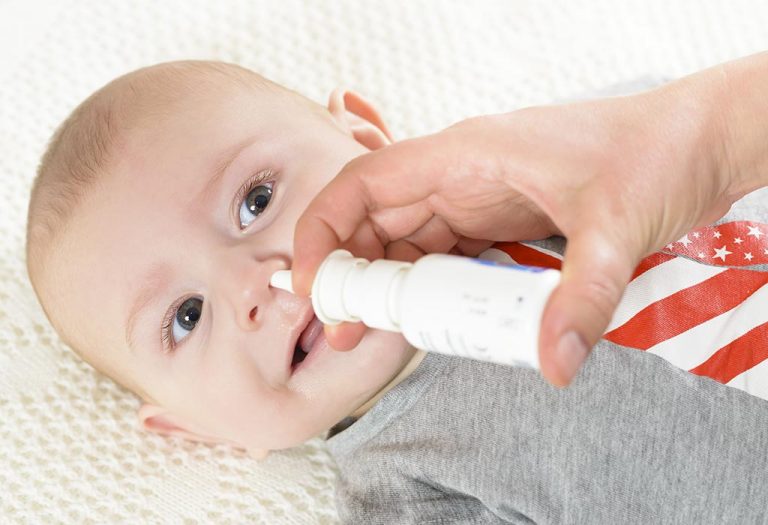
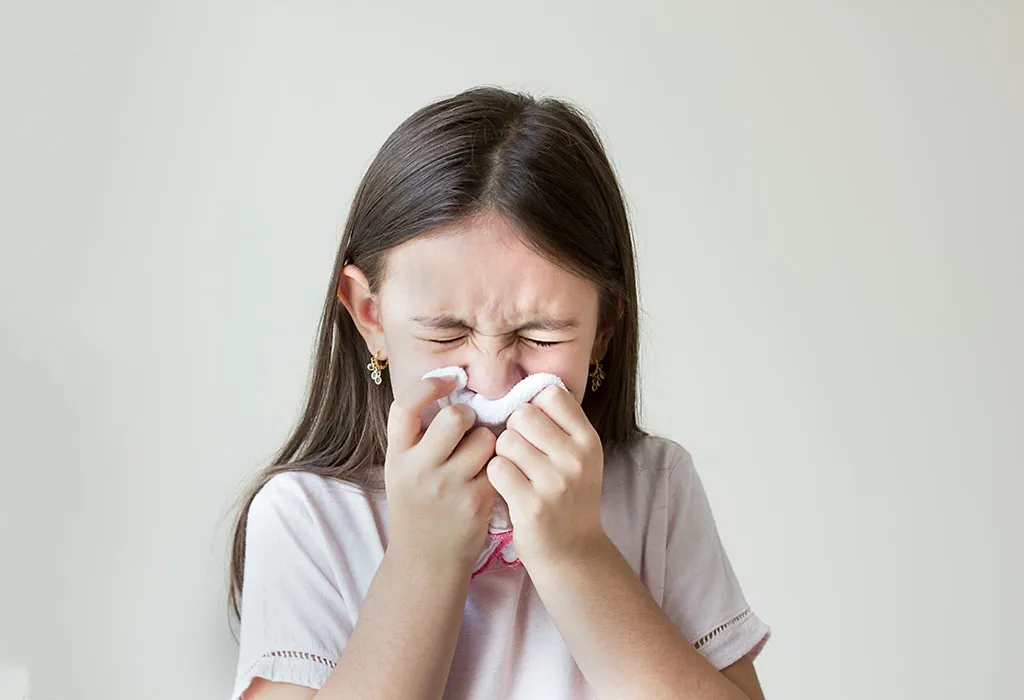
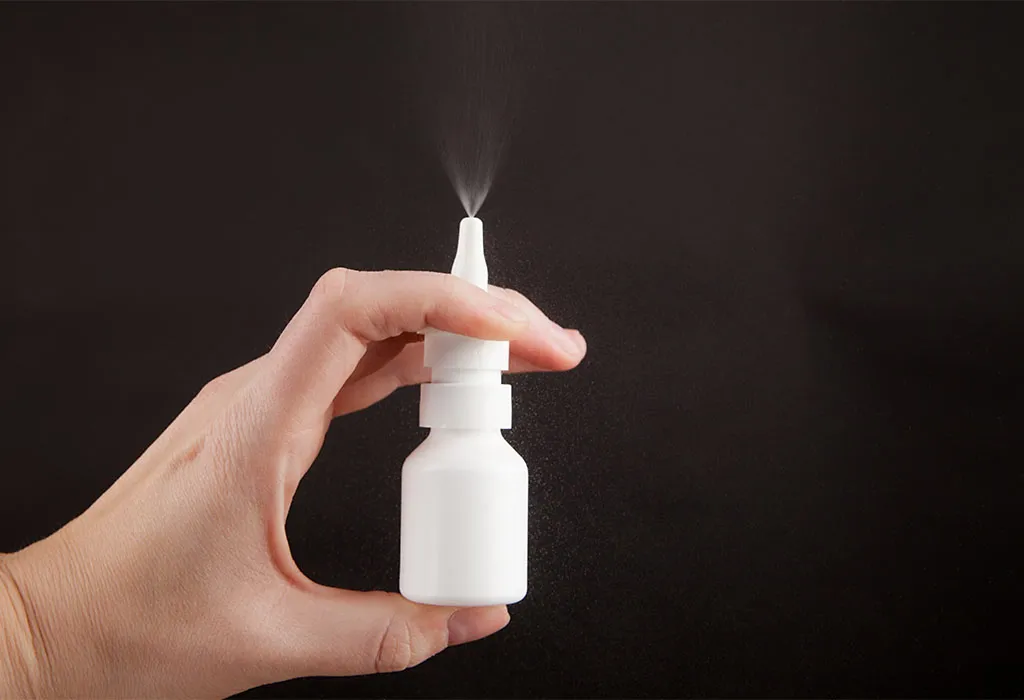
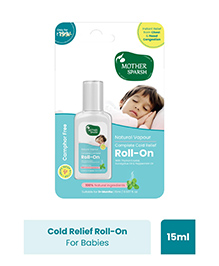
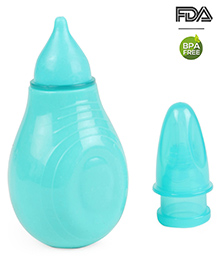
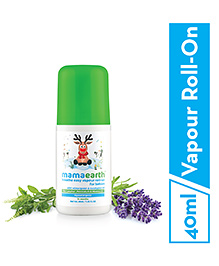
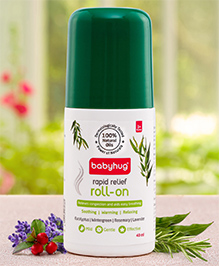
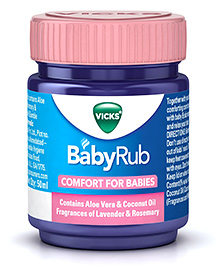

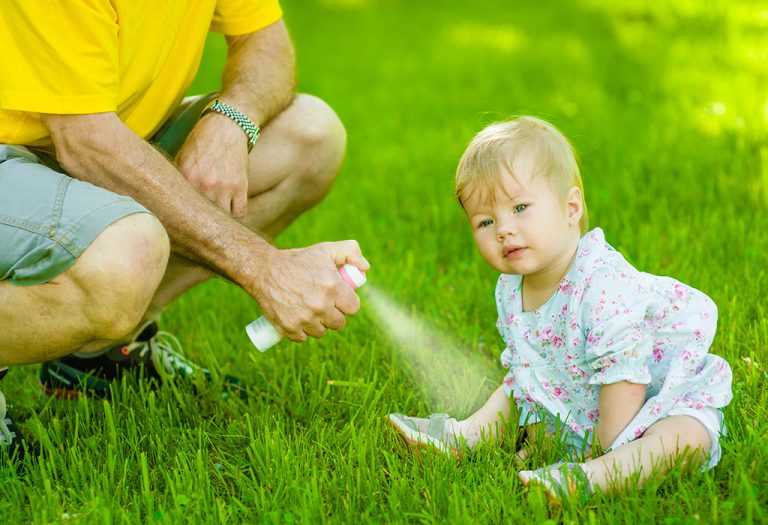
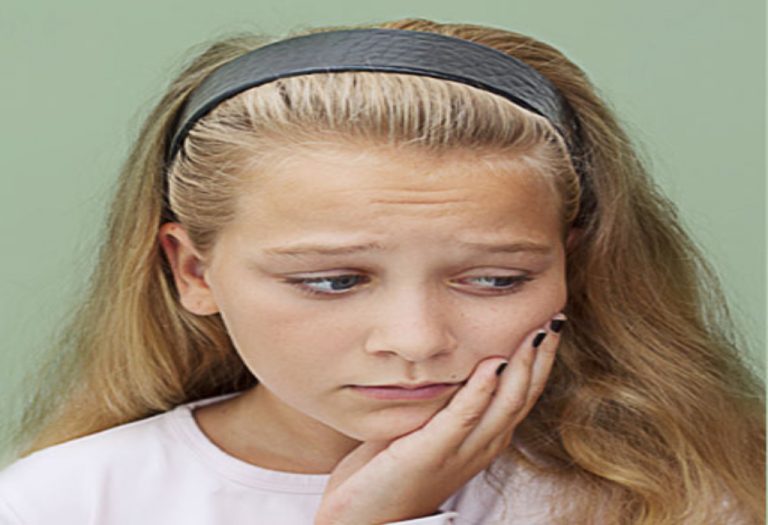

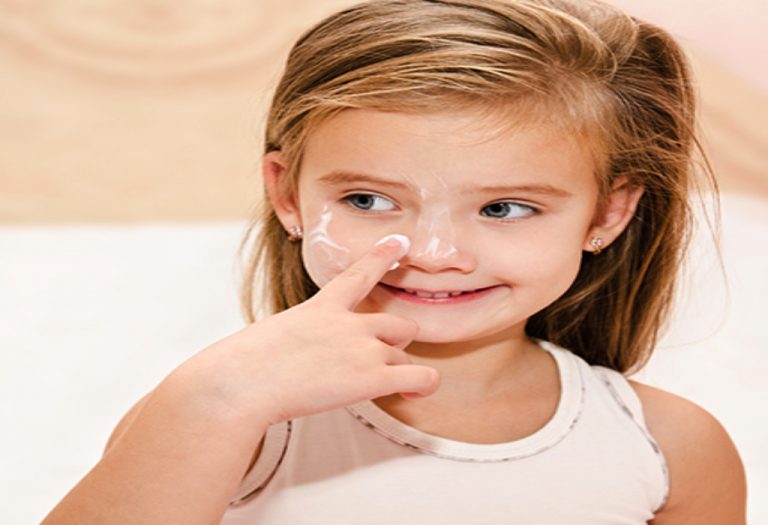



.svg)


















